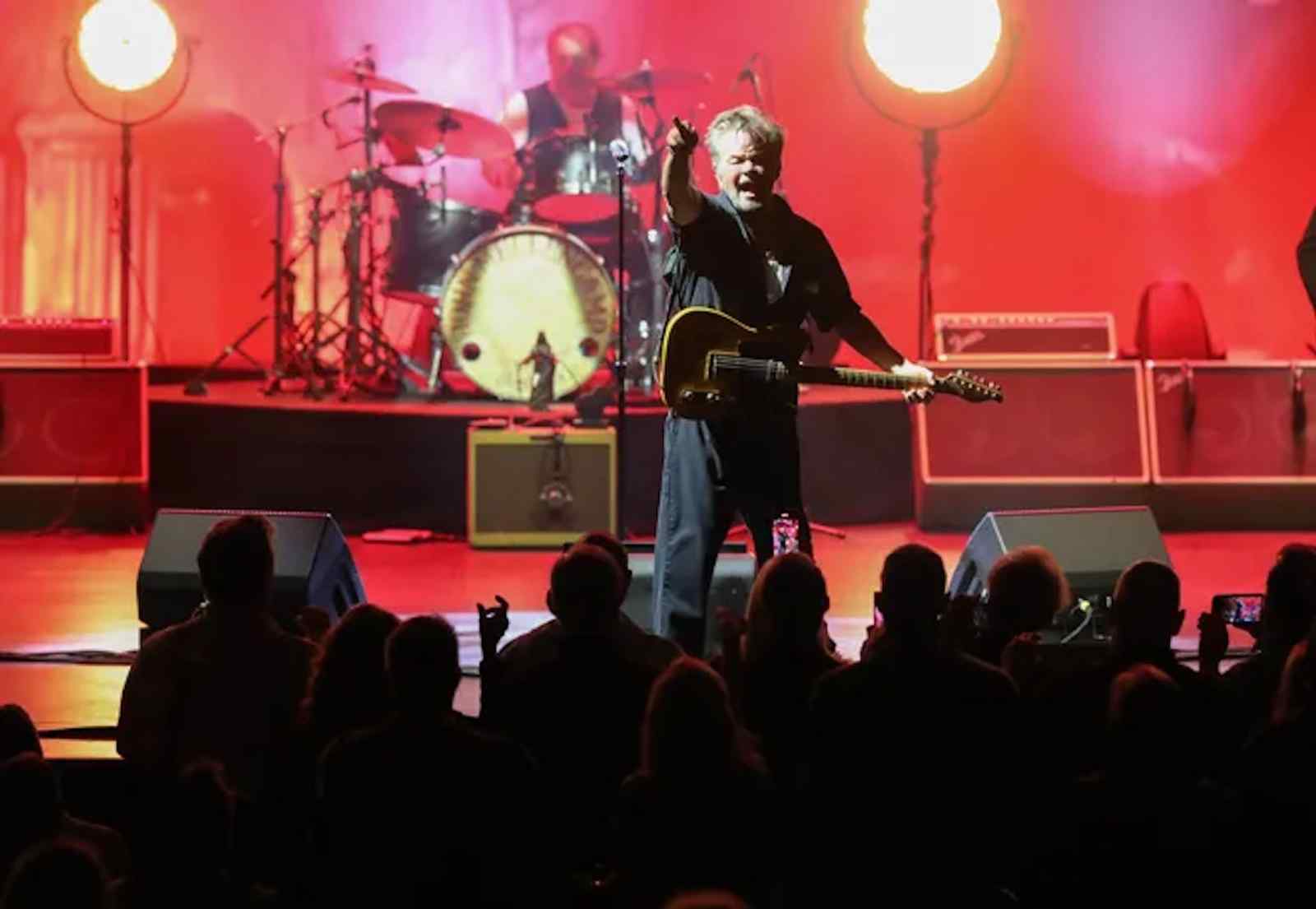Savannah Morning News: John Mellencamp Reminds Savannah Audiences Why He Is One of America's Greatest Songwriters
Savannahnow.com By Josephine Johnson
If you lived in Indiana during the 1980s, nothing is more definitive of that decade than Larry Byrd, David Letterman, the movie “Hoosiers,” and John Mellencamp. Touchstones of the time, they made it tangibly cooler to tell people you were from "The Crossroads of America."
But growing up in a small farming community, the songs and success of John Mellencamp were what hit differently. Though too young to catch a concert in the glory days of his biggest hits, my hog-raising and tractor-driving older cousins, uncles and grandfather had an affinity for Mellencamp. He made us all feel seen.
His advocacy work with Farm Aid beginning in the mid-1980s came at a time when nearly all my family struggled to keep their livelihoods. Mellencamp understood. Afterall, he was from Seymour, Indiana, just down the road. He was one of us.
On Tuesday, April 23, John Mellencamp concluded his two-month, 27-city “Live And In Person Tour” at the Johnny Mercer Theater in Savannah. And I knew this time, I had to hear him.
Streams of fans, mostly Baby Boomers and GenX-ers, poured through security. The mood was lively, happy, lots of hugs and smiling while waiting to pass into the building. One of the venue’s house photographers revealed that all but maybe a dozen of the theater’s 2,500 seats sold. Tonight’s show was a near sellout.
In lieu of an opening act, a 25-minute montage kicked things off promptly at 8 p.m. Moments from black-and-white classics ― “The Misfits,” “Giant,” “Grapes of Wrath,” “Hud,” and “Streetcar Named Desire” ― cast a mood of reflective nostalgia in stark contrast to the night’s first rocker, where Mellencamp snarled a chorus in characteristic rasp, “I ain’t got no friends.” Then the ensemble went immediately into edgy hit “Paper and Fire.” The audience was ablaze, standing and singing along.
And Mellencamp, clad in navy coveralls, his outfit of choice these days, sang full throttle, gesticulated with his guitar, and moved with palpable presence. At age 72, this man just keeps rocking. And I wished dearly my grandfather could stand with me watching our own Indiana boy “who’d done good.”
Toward the middle of the show, he broke away from the band and perched on the edge of the stage with acoustic guitar and harmonica. Always true to his convictions, he spoke about the past decade’s alarming increase in homelessness across the nation then shared a story about a barefoot girl on the street in Portland with whom he’d had a brief conversation.
When Mellencamp offered a $100 bill, she quickly grabbed it and ran, calling out “I’ve always depended on the kindness of strangers,” harkening immediately back to the night’s earlier film montage which included the same line from “Streetcar Named Desire.”
All of that to set up his song “The Eyes of Portland” with focused chorus, “all of these homeless/where do they come from/in this land of plenty/where nothing gets done/to help those who are empty and unable to run/your tears and prayers won’t help the homeless.”
Another evening standout, revealing Mellencamp’s depth and reverence, included a piece more like performance art. Long-time bandmember and violinist, Lisa Germano, introduced a spoken-word version of the song “The Real Life” from Mellencamp’s 1987 release “Lonesome Jubilee.” She explained how John had been close with Paul Newman and Joanne Woodward for many years, and he’d asked Joanne to read his lyrics over a musical arrangement. And so, Germano and keyboardist and accordion player, Troye Kinnett, wove a stirring duet beneath a recording of Woodward’s haunting voice.
Soon after, the band was back onstage with the audience dancing and singing to Mellencamp’s rally cry “Rain on the Scarecrow.” To be sure, this was a banger among my family in the ‘80s and beyond, and I remember my cousins cranking the boombox in the pole barn when it was on the radio. The night’s live, extended performance did not disappoint.
A little later when he introduced his band, he brought out his 29-year-old son, Hud, with whom he briefly hammed it up as the audience applauded.
The nuances of the evening were beginning to come together. The opening film montage with paralleling iconic script lines, then Paul Newman as the star of 1963 classic “Hud,” and Mellencamp’s own working class coveralls—all a way to honor many of the things and people whom John Mellencamp not only loves but who also have helped shape who he is. Don’t be fooled by all the F-bombs he may drop during a performance. At the heart of it, Mellencamp is a thoughtful, deeply artistic, and caring person.
The night concluded with songs “Cherry Bomb” and “Hurt So Good,” which had the audience once more on their feet and singing along.
Mellencamp’s politics might not resonate with everyone, but the man writes catchy, heartfelt songs and to this day, delivers them with fierce conviction alongside luminaries Woody Guthrie, John Prine and Johnny Cash. When you have an opportunity to see John Mellencamp, you must. He simply is one of America’s greatest songwriters.











